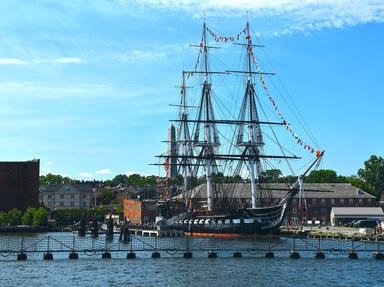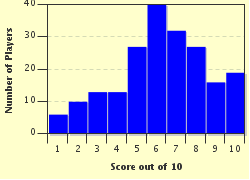Quiz Answer Key and Fun Facts
1. This former Governor of Indiana Territory became the American commander of the Army of the Northwest in 1812. His army recaptured Detroit from the British and pushed as far as London, Ontario. Years after the war, he became the 9th President of the United States, but died after only 32 days in office. He still holds the record for the shortest term of any American President. Who is he?
2. Early in the War of 1812, British Major-General Sir Isaac Brock enjoyed many early victories. Despite the successes of his armies, he was killed in October 1812. He has since become one of Canada's few military heroes, and a 56-metre column still stands in his honour at the approximate site of his death. In which battle did he die?
3. Throughout most of the War of 1812, the British were also fighting a major war in Europe. Which European country was Great Britain's primary adversary from 1812-1814?
4. Which former American President, who left office in 1809, declared before the War of 1812 began that the "acquisition" of Canada would be a "mere matter of marching"?
5. In January 1813, the British and their Native American allies scored a decisive victory at the bloody Battle of Frenchtown, sometimes known as the River Raisin Massacre. In what present-day province or state did this take place?
6. This Shawnee chief unified a large Native American confederacy and sided with the British during the War of 1812 against the Americans. In 1813 he died leading his armies near London, Ontario, in the Battle of the Thames. What Native American leader is this?
7. In September 1813, this famous American Commodore led his fleet to victory in the Battle of Lake Erie, a naval battle near Toledo, Ohio. In 1854, his brother would go on to force the opening of Japan to foreign commerce. Who is this commodore whose victory gave the Americans sea power in the Great Lakes throughout the duration of the War of 1812?
8. Which French-Canadian officer of the British Army is famous for repelling the American advance on Montreal at the Battle of Chateauguay near Ormstown, Quebec, in 1813?
9. In the Niagara Peninsula in July 1814, 5,000 Americans, British and Canadians fought the bloodiest battle of the War of 1812. By the end of the battle over 1,100 men from both sides were wounded, and 250 killed. By what name is this battle known?
10. The last major battle of the War of 1812 occurred in January, 1815, two weeks after a peace treaty had been signed between Great Britain and the United States in Belgium. Because news of the peace had to travel to North America by boat at the time, it did not reach the combatants in time to prevent the battle. Where did this last battle take place?
Source: Author
poultrybot
This quiz was reviewed by FunTrivia editor
bloomsby before going online.
Any errors found in FunTrivia content are routinely corrected through our feedback system.

